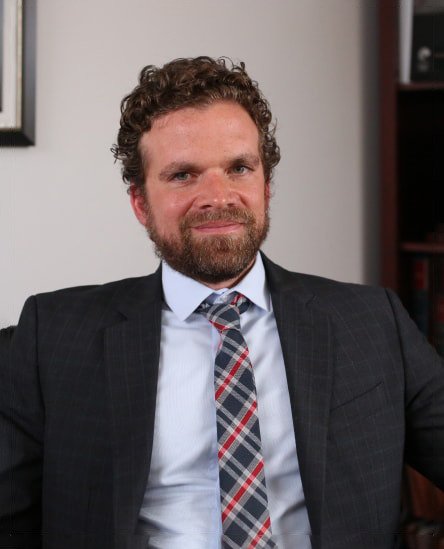Workers’ Compensation Claim Denied – Filing an Appeal
If your workers’ compensation benefits in St. Paul have been denied, the first and most important thing to know is that you can appeal the denial.
The appeals process starts with the Minnesota Department of Labor & Industry (DLI). As that Department explains, the initial steps in the appeals process usually include the following:
- Call the insurance claims adjuster to ask about the denial of benefits. When you speak with the insurance claims adjuster, you should take detailed notes about the phone call in writing, including the date of the call, the time of the call, and the name of the adjuster. There is a chance that you were denied benefits because of a minor error you made in your application or even a bureaucratic error made by the insurance company. As such, it may be possible to correct the problem over the phone and to have your benefits application approved.
- If calling the claims adjuster does not work, next you can contact an Alternative Dispute Resolution (ADR) specialist at the DLI. That specialist can attempt to help with your problem, but if they cannot resolve it, you still have other options.
- File a Medical Request form or a Rehabilitation Request form. Filing either of these forms will likely cause you to go through a mediation procedure in an attempt to resolve your workers’ compensation claim dispute. A DLI mediator trained specifically in workers’ compensation issues can and will try to help you reach a resolution with the insurer.
- File an Employee’s Claim Petition form. You do not have to go through mediation or other ADR processes before you seek other methods for appealing your denied workers’ compensation benefits. You can appeal your denial by filing an Employee’s Claim Petition form with the help of an experienced Minnesota workers’ compensation attorney.
What Is an Employee’s Claim Petition Form?
An Employee’s Claim Petition form is the document that an injured worker can file in order to request a hearing when benefits have been denied.
The form requires the injured worker to fill out basic information, including relevant names, contact information, dates of injury, dates of employment, information about the injury, and what kind of appeal procedure the injured worker is requesting.
Again, it is important to work with a St. Paul workers’ compensation lawyer on your appeal.
The process of filing the Employee’s Claim Petition form itself can be complicated, and a minor error can prevent you from successfully appealing the benefits denial.
Stages of the St. Paul Workers’ Compensation Appeals Process
Once an injured worker is denied benefits and seeks an appeal hearing by filing an Employee’s Claim Petition form, there are still several stages of appeal that the injured worker can go through.
Workers’ Compensation Division of the Minnesota Office of Administrative Hearings (OAH)
Judges in the OAH conduct reviews of denied workers’ compensation claims.
Minnesota Workers’ Compensation Court of Appeals (WCCA)
If your claim is denied by the OAH, then you can appeal to the WCCA. The WCCA has the authority to review any decisions made by the OAH in addition to reviewing certain workers’ compensation decisions made by the DLI.
Minnesota Supreme Court
If your claim is denied by the WCCA, you still have the option to appeal to the Minnesota Supreme Court. This is a particularly complex appeals process that your lawyer can help with. When you appeal to the Minnesota Supreme Court, they will decide whether or not to review your case. With the help of your St. Paul workers’ compensation attorney, you can show that there is a need for the Minnesota Supreme Court to hear your case.
How Long Does It Take For a Judge to Approve a Workers’ Compensation Settlement?
The time it takes for a judge to approve a workers’ compensation settlement varies.
In some cases, approval is immediate and the claim is required to be paid within 14 days. In other cases, it takes longer.
It takes longer for a judge to approve a settlement if the settlement requires a review of fairness, reasonableness, and compliance with the law on workers’ compensation settlements. This review is required at different times.
A fairness review is required if either party does not have a lawyer representing them in the settlement process. A fairness review is also required by law when the settlement is full, final, and complete. A settlement is full, final, and complete if it bars an injured party from recovering any future medical care related to the injury. If review is required, the judge has 30 or 60 days, depending on the circumstances, to approve or deny a settlement. Otherwise, a judge can approve the settlement right away.
What Should I Do If Workers’ Compensation Denies Surgery?
Minnesota workers’ compensation law requires your employer to provide any and all medical care “reasonably necessary” to treat and allow you to fully recover from the injury. This, without question, includes surgery. If your doctor determines that surgery is reasonably necessary, your employer can request a second medical opinion. This second opinion must be paid for by them.
If your employer or insurance company denies you surgery, you should call the insurance claims adjuster to try to solve the problem. Explain yourself and why you believe the surgery is necessary and reasonable.
If your surgery is still denied, you should hire a lawyer to help guide you through any of the processes outlined above.
Whether it is alternative dispute resolution through DLI, a hearing at the Office of Administrative Hearings (OAH), or just the initial filing of the Employee’s Claim Compensation Form, a St. Paul personal injury lawyer can help.
A personal injury lawyer can help you avoid costly mistakes in paperwork and assist you in getting your surgery or any other part of your claim resolved.
Can Workers’ Compensation Deny Physical Therapy?
If physical therapy is reasonably necessary for you to fully recover from an injury, it cannot be denied. This is also true with regard to the lasting effects of an injury.
Your employer is required to pay for any and all medical care necessary to treat and help you fully recover from the injury and any aftereffects. The law specifically includes physical rehabilitation in its text.
If your employer or their insurance company denies your claim for physical therapy, you should appeal. A St. Paul personal injury lawyer can help you with the appeal process from start to finish.
Contact a Workers’ Compensation Appeals Lawyer in St. Paul
Were your workers’ compensation benefits denied?
A St. Paul workers’ comp appeals attorney can help you.
The advocates at Arechigo & Stokka have years of experience assisting injured workers with claims and can discuss your rights with you today.
If you were injured on the job, you deserve to be compensated for your losses. Contact us for more information.



